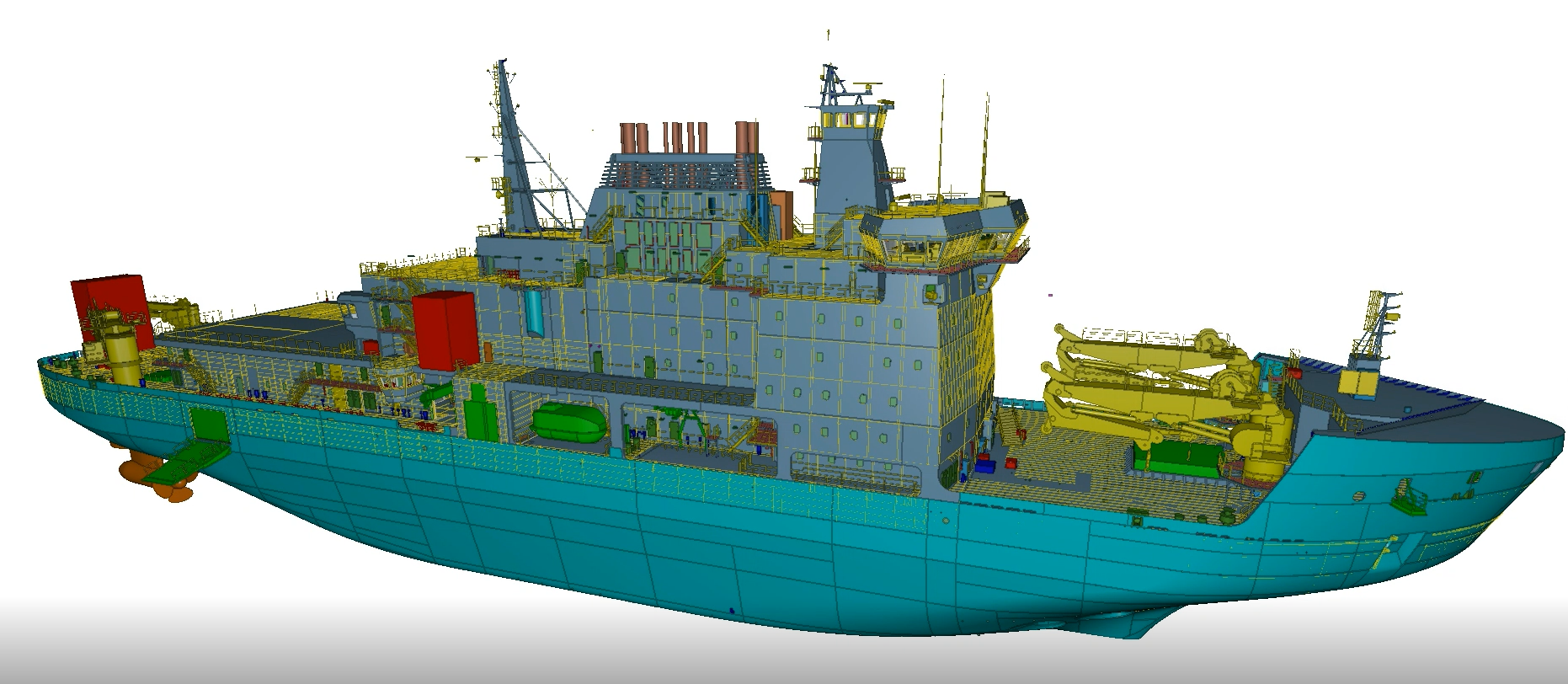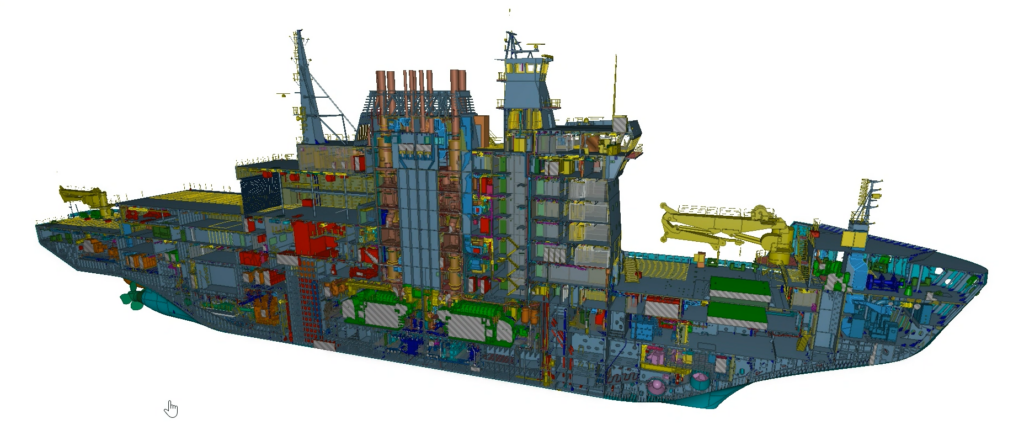Today at CANSEC, Canada’s leading defence & security tradeshow, Seaspan’s Vancouver Shipyards presented its progress towards completing the functional design on the first heavy Polar Icebreaker in Canada in over 60 years. Functional Design of the vessel is now more than 70 per cent complete and 3D modelling of the vessel is well advanced, setting the stage for Seaspan to cut steel on the flagship of the Canadian Coast Guard’s icebreaking fleet before the end of the year.

With Canada’s current largest Icebreaker, the CCGS Louis S. St-Laurent, expected to retire at the end of the decade, the new Polar Icebreaker will be one of the world’s largest, most capable and powerful icebreakers. While designed and built before the implementation of the Polar Code, the Louis’ capability is akin to a Polar Class 4. Canada’s operational requirements drive to building a new Polar Class 2 icebreaker that can independently operate anywhere in the Arctic year round – this capability includes the ability to operate at -50 degrees Celsius which introduces considerable complexity to the design and build of the vessel.
Most icebreakers primarily break ice. The new Polar Icebreaker will also be capable of fulfilling many different demanding missions necessary for Canada including a wide array of Arctic science missions, search and rescue, security, navigation, transportation and emergency response. This impressive range of capabilities also adds to the design and engineering challenges that are being addressed by the Canadian Coast Guard and the Seaspan team.
“Beginning construction on the Polar Icebreaker will be a monumental achievement for Seaspan, Canada and the National Shipbuilding Strategy,” said Dave Hargreaves, Seaspan Shipyards’ Senior Vice President of Strategy, Business Development and Communications. “By re-investing in our shipyard’s capabilities and continuously driving improvements in efficiency and quality ship over ship, Seaspan has shown that we have the experience, skills, and personnel to build one of the largest and most complex ships ever to be constructed in Canada. Our experience as the modern Coast Guard’s leading shipbuilding partner can now be leveraged by other Canadian shipyards to deliver Canada’s ships faster and smarter.”
“The Polar Icebreaker presents unique and complex design challenges, and I’m extremely proud of our team and the progress we’ve made to optimize the design of this important vessel for Canada,” said Jessica Fetterman, Chief Engineer, Polar Icebreaker for Seaspan. “Thanks in part to our cross-country supply-chain of 750+ partners, Seaspan has built Canada’s largest marine engineering and design team, a tremendous capability that did not exist here before the National Shipbuilding Strategy.”

In preparation for full-rate construction, Seaspan successfully completed construction of a Polar ‘Prototype Block’ earlier this year to ensure that our production teams are fully prepared to cut steel on the Polar Icebreaker in late 2024. The process of building the Prototype Block resulted in learnings in three key areas: improvements in design for manufacturing; testing of new equipment, processes and procedures; and validation of first-time quality in manufacturing to form and weld this new, specialized and thicker steel. Steel needed to construct the Polar Icebreaker is twice as thick in some areas as the steel Seaspan has used for the other ships built under the NSS and is more challenging to work with combined with the tight frame spaces to support icebreaking capabilities. It also takes additional time to weld, and the thicker steel is not as malleable, therefore constructing this extra Prototype Block prior to starting full rate construction was crucial for Seaspan’s preparedness.
QUICK FACTS ABOUT THE POLAR ICEBREAKER
- With a design displacement of 26,036t, the Polar Icebreaker will be 158 metres long and 28 metres wide, and able to accommodate up to 100 personnel. It will be able to operate farther north, in more difficult ice conditions and for longer periods than any icebreaker in Canada to date.
- The primary missions of the Polar Icebreaker include protecting Canada’s sovereignty, Arctic science, environmental response, Northern resupply, and search and rescue.
- Highlights of key design features, include:
- IACS Polar Class 2 (PC2) Heavy Icebreaker
- More than 40MW of installed power
- Ice-classed azimuthing propulsion system
- Complex, multi-role mission capability
- Scientific Laboratories
- Moon Pool (to allow for safe deployment of equipment from within the ship)
- Helicopter flight deck and Hangar
- Vehicle Garage and future Remotely Piloted Aircraft System (RPAS) capability - Under the NSS, Seaspan has become a major economic and job creation engine. According to an economic analysis conducted by Deloitte, Seaspan has contributed $5.7 billion to Canada’s GDP since 2012, while also creating or sustaining more than 7,000 jobs annually.